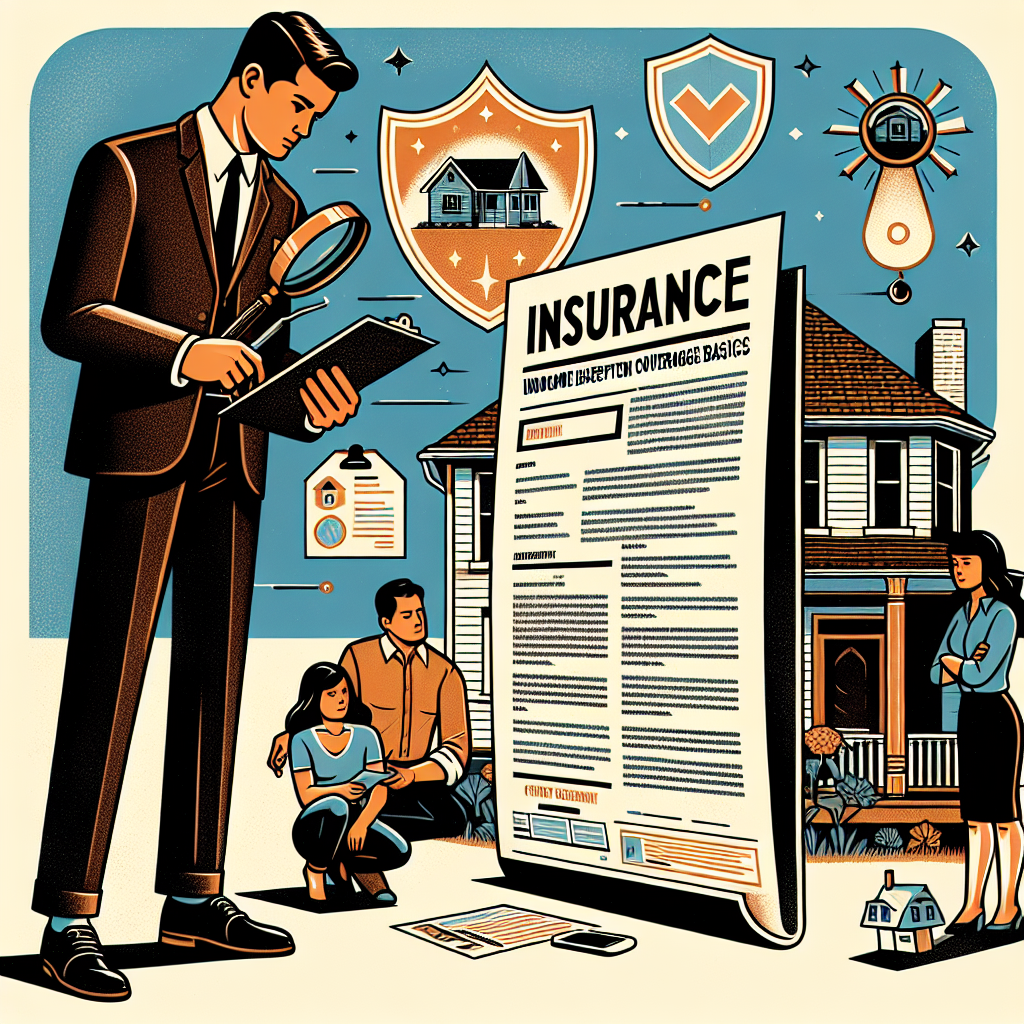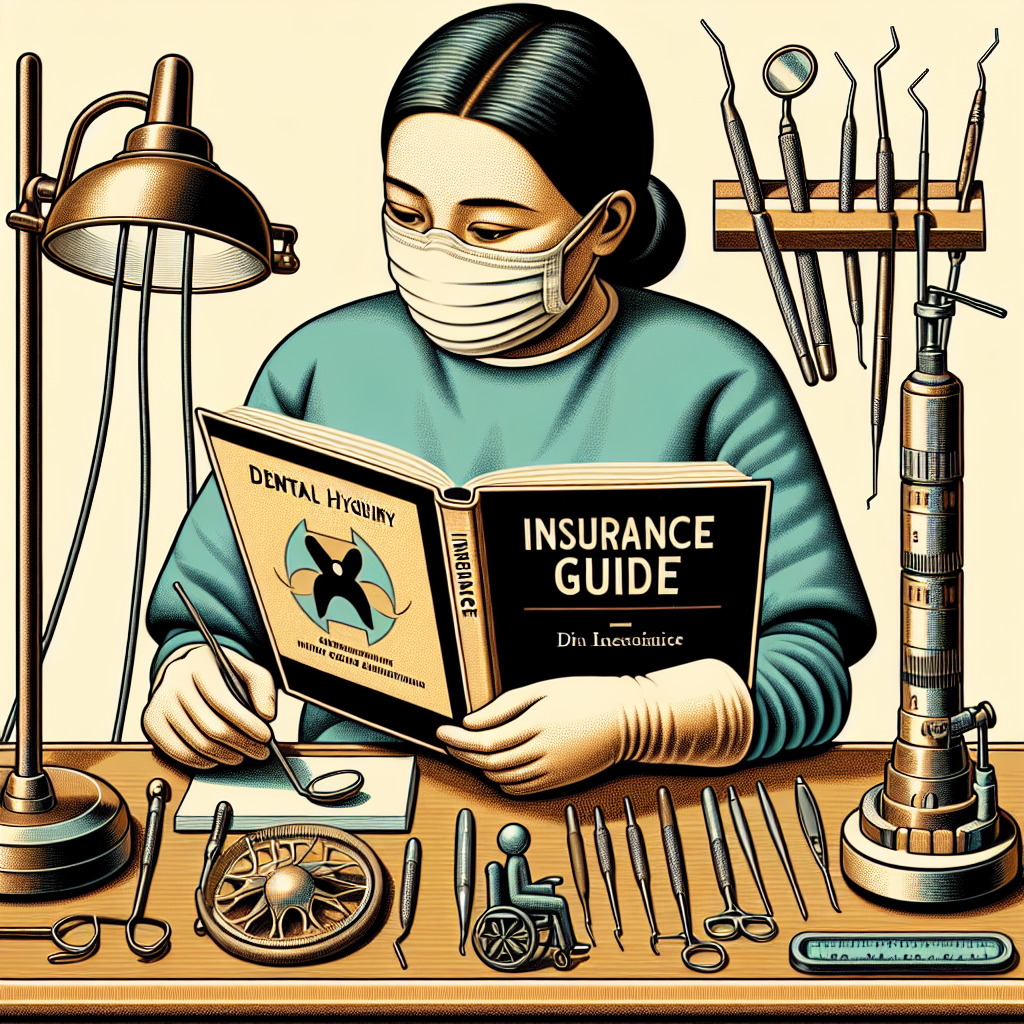Filed under Home Insurance on
Understanding Home Inspector Insurance Coverage Basics

In the evolving landscape of the real estate market, home inspectors play a pivotal role in ensuring the integrity and safety of property transactions. However, like any professional service, home inspections come with inherent risks. That's where home inspector insurance coverage becomes crucial. Let's delve into the fundamental aspects of home inspector insurance coverage, shedding light on its necessity, types, and benefits.
Why Home Inspector Insurance is Essential
Home inspectors are tasked with the profound responsibility of assessing the condition of a property. Despite their expertise and diligence, the nature of the job involves a certain level of uncertainty and potential for errors. From overlooking a critical issue to an inadvertent oversight, numerous scenarios can lead to claims against inspection professionals. Having comprehensive home inspector insurance coverage serves as a safeguard, providing financial protection and peace of mind.
Moreover, insurance is not just a safety net; it's often a requirement. Many states mandate specific insurance coverages for home inspectors as part of their licensing requirements. Furthermore, being insured enhances trust and credibility with clients, positioning inspectors as conscientious and reliable professionals.
Types of Home Inspector Insurance Coverage
Understanding the various types of coverages available is essential for home inspectors seeking to protect their business effectively. The primary types of insurance usually include General Liability Insurance, Errors and Omissions Insurance, and Workers' Compensation Insurance. Each coverage serves unique purposes and offers distinct protections:
General Liability Insurance
General Liability Insurance is the cornerstone of any home inspector insurance coverage. It shields inspectors from third-party claims related to bodily injuries and property damage that might occur during an inspection.
- Bodily Injury: This aspect covers legal costs and medical expenses if an inspector's work causes physical harm to a client or another party.
- Property Damage: Coverage extends to any accidental damage to a client's property that occurs during the inspection process.
General Liability Insurance provides essential coverage, though it does not cater to professional mistakes. That's where Errors and Omissions Insurance steps in.
Errors and Omissions Insurance
Errors and Omissions (E&O) Insurance is specifically designed to protect home inspectors from claims of negligence, errors, or omissions made during the inspection process. It is arguably the most critical component of home inspector insurance coverage.
- Professional Liability: E&O covers legal fees and settlements resulting from claims that the inspector failed to perform their duties accurately.
- Reputation Protection: Even with the most meticulous inspection, misunderstandings can arise. E&O Insurance helps safeguard an inspector's reputation against unsubstantiated claims.
Workers' Compensation Insurance
For home inspection businesses with employees, Workers' Compensation Insurance is a vital addition. It covers medical expenses and lost wages for employees who get injured or fall ill as a direct result of their job duties. While it might not be necessary for solo practitioners, it becomes essential as a business grows and hires additional staff.
Evaluating the Cost of Home Inspector Insurance Coverage
The cost of home inspector insurance varies based on several factors:
- Business Size: Larger businesses with more inspectors and employees generally face higher insurance premiums.
- Location: Different states have varying legal requirements and risk factors that influence insurance costs.
- Coverage Limits: Choosing policies with higher coverage limits will result in higher premiums, but they offer enhanced protection.
- Claims History: A history of claims can lead to increased insurance costs due to perceived higher risk.
Despite the costs, home inspector insurance coverage is a necessary investment for professionals serious about maintaining a reputable and secure business.
Trends in Home Inspector Insurance
The home inspection industry, like many others, is being shaped by technological advancements and market dynamics. Two key trends include:
Increased Demand for Customized Policies
As each home inspection business faces unique risks, there's a growing demand for tailored insurance policies. Insurers are offering more personalized packages that cater to individual business needs, allowing inspectors to select specific coverages that best suit their operational risks.
Emphasis on Risk Management
Training and technology are playing an increasing role in risk management. Insurers often provide resources and tools that educate inspectors on reducing liability and preventing claims, such as using drones for better property assessment or digital tools for detailed reporting. Such initiatives not only lower potential risks but can also lead to reduced insurance premiums.
Expert Opinions on Home Inspector Insurance
Industry experts emphasize the significance of comprehensive coverage. According to Jane Smith, an experienced insurance broker specializing in real estate professionals, "In a field fraught with potential litigation, robust home inspector insurance coverage is a necessity, not a luxury. It protects not only the inspector but also builds client confidence in professional services."
Furthermore, seasoned home inspector John Doe stresses the importance of understanding policy intricacies. "Every inspector must meticulously review their policy’s inclusions and exclusions. Knowing what is and isn't covered is crucial to avoid any surprises during a claim," he advises.
Choosing the Right Insurance Provider
Selecting an appropriate insurance provider is as critical as choosing the right coverage. Here are some tips for finding a reliable insurer:
- Industry Experience: Opt for providers with a proven track record in offering insurance for home inspectors. They will understand industry-specific needs better.
- Comprehensive Offerings: Ensure the insurer offers a range of policies that can be tailored to specific needs, be it General Liability, E&O, or Workers' Compensation Insurance.
- Customer Service: Superior customer support is indispensable, especially when filing a claim. Seek insurers known for their responsiveness and claims handling efficiency.
- Financial Stability: Assess the financial health of the insurer to guarantee they can meet their obligations in the event of substantial claims.
The Path Forward for Home Inspectors
The world of home inspection is evolving, and so is the landscape of associated risks and insurance needs. It is more important than ever for home inspectors to stay informed about their insurance options and requirements. Regular policy reviews, staying updated on industry trends, and engaging in risk mitigation practices can all contribute to a thriving, sustainable inspection business.
In conclusion, navigating home inspector insurance coverage basics is about more than just financial protection; it's about fostering trust, ensuring compliance with legal mandates, and enhancing the professional standing of an inspector. By understanding and securing appropriate insurance coverage, home inspectors can focus on what they do best—ensuring safe and satisfactory property transactions for all parties involved.





